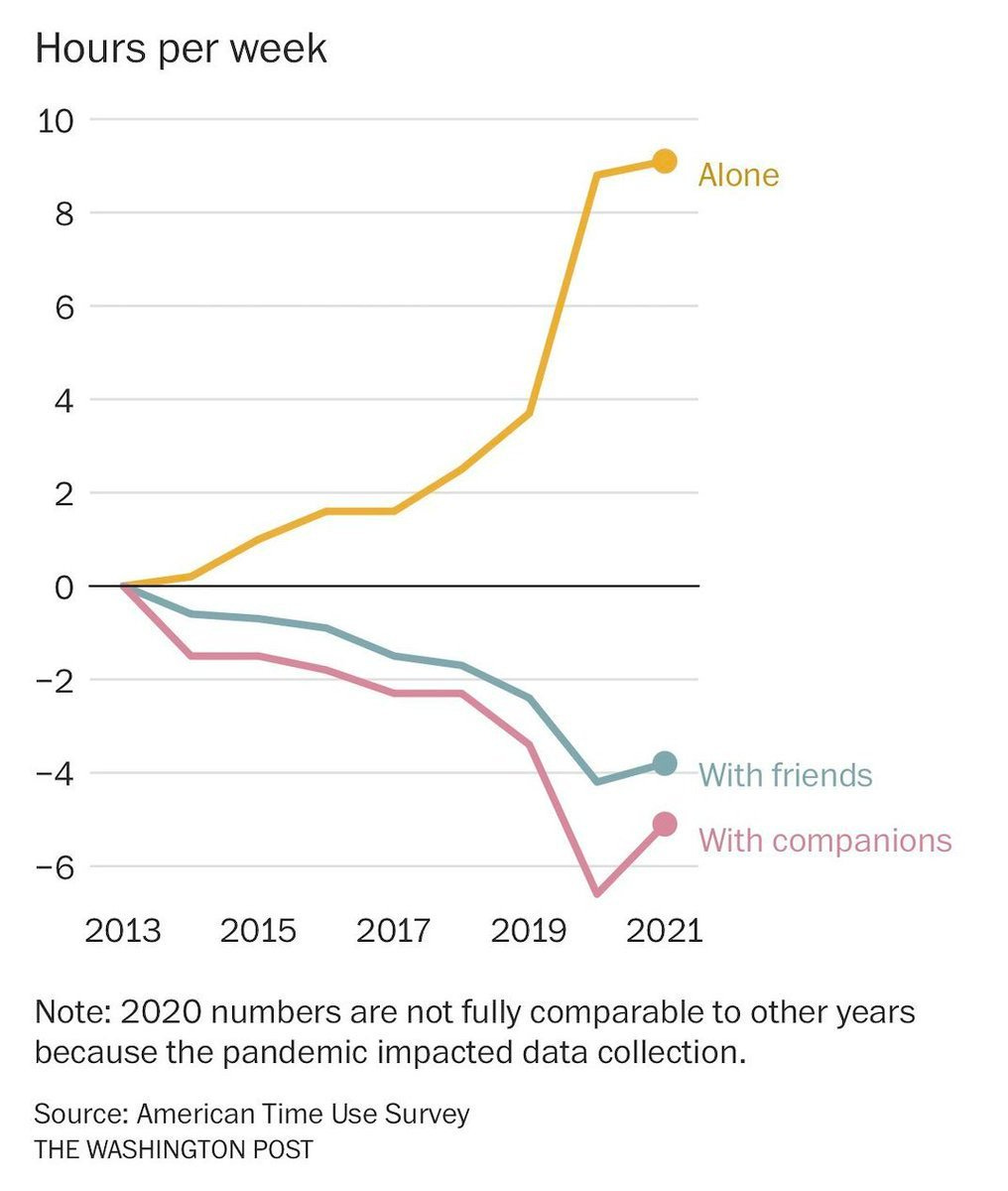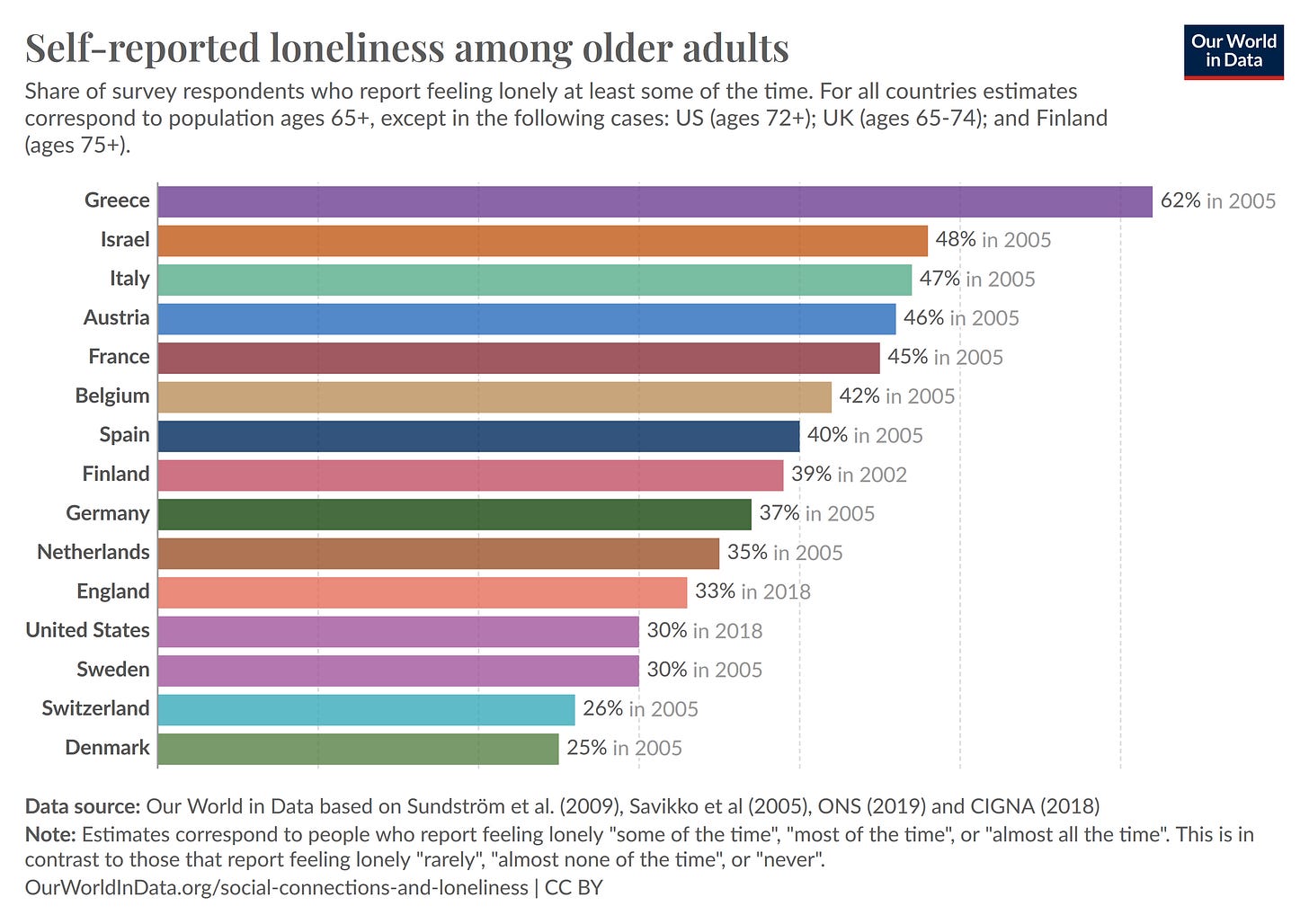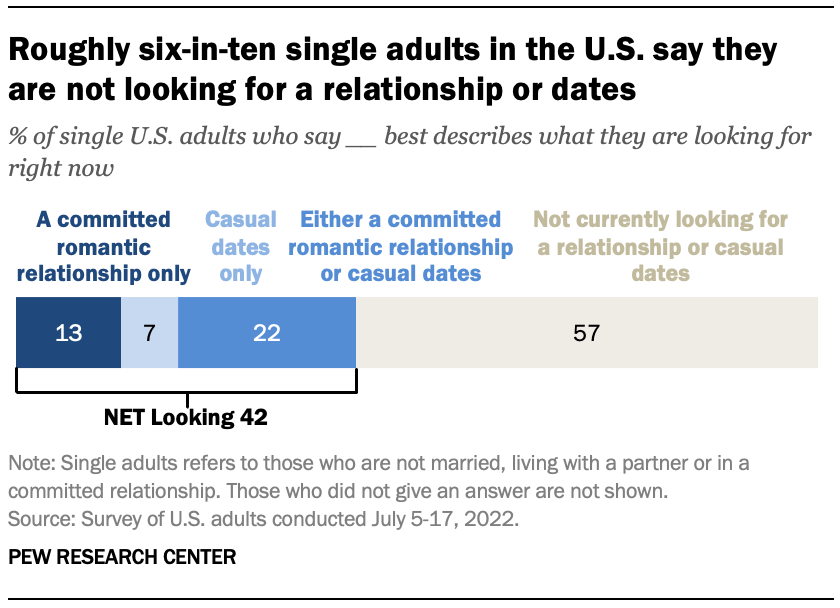The narrative violation about the loneliness epidemic
We should differ between feeling lonely and being alone.
Probably you have heard many times the mantra:
We have a loneliness epidemic, it's making people sad and depressive. Social media, smartphones and YouTube are blameful. Let's go back to meeting and traditional life.
And indeed, I think it’s true. News about loneliness, particularly in elderly, are not difficult to find on news, and art has convinced us about the fatality of being alone. Some knows about the mental health problems related to loneliness became very widespread, even more with the past Covid epidemic. The British Ministry of Loneliness is prone to make us take this seriously, and I cannot deny the fair that provokes reaching to a certain age alone.
Obviously, data seems to support this idea:
As time passes, we live more and more alone:
And this is the self-reported loneliness among older adults:
However, maybe we should stop publishing tearful headlines about the new social drama, and keep analyzing more data.
A 2020 study revealed that between 2000-2002 and 2016-2018, the rate of sexually inactive men aged 18 to 24 rose from 18.9 to 30.9%. During the same time frame, the rate for sexually inactive young women increased from 15.1 to 19.1%. This claim came to reinforce the social illusion that loneliness is not only affecting elderly age, but also young people. And it also seemed to support the narrative of the evil-invented smartphones and the social isolation. I need more than a simple post to analyse and give possible explanations to the reasons laying on this social phenomena. Reality is not so simple as blaming Tinder or Tik Tok. However, different studies blamed other factors rather than smartphones to explain this decline. Among other aspects, they talked about online connections, economic factors, web porn sites, health concerns and career priority.
Not only that: it seems that finding a love couple is no longer the priority for many people, according to Pew Research:
But data comes again: Narrative violation: People want to spend more time alone as they become richer:
Are people who live alone more likely to say they feel lonely?
The researchers Caitlin Coyle and Elizabeth Dugan explored this question using data from the Health and Retirement Study in the US. In their analysis, covering almost 12,000 respondents over the years 2006-2008, they found that loneliness and social isolation are not highly correlated at the individual level.
To be precise, Coyle and Dugan found a correlation coefficient of 0.2. That means the correlation is positive, and it is statistically larger than zero; but it’s not very large in absolute terms. Their study does not provide the raw data, but in general, a scatter plot with correlation 0.2 is pretty much just a cloud of dots.
Neither seems to be a substantial difference between elderly and youngsters according to data.
So I think that we should differ between feeling lonely and being alone, which makes a huge difference.
Some few years ago, experts came with one of those clickbait statements that will pervive in the social memory forever:
The World Health Organization (WHO) has declared loneliness to be a pressing global health threat, with the US surgeon general saying that its mortality effects are equivalent to smoking 15 cigarettes a day.
However, the reality is not what mass media and people use to admit. It doesn’t mean that being alone will make you live worse. Strictly, this analogy is based on the disease risk projection of different epidemiological studies that show that as a risk factor for pathologies and disability, the experience of subjective loneliness has a weight comparable to smoking 15 cigarettes a day or being obese. This is certainly not a result that has been validated in independent studies, but it’s simple a rather graphic comparison.
Before investing hundreds of millions of euros in social policies, it’s compulsory to define well loneliness. Is it to cope with the gap that where friends used to be? The Australian Institute of Family Studies showed it well, and tried to let clear the subjective difficulty and essence of loneliness. It’s nothing simplistic at all.
Defining ‘social isolation’, ‘loneliness’ and other related terms is important because they affect how we understand and measure social relationships and how we support people experiencing problems with social relationships and connections.









